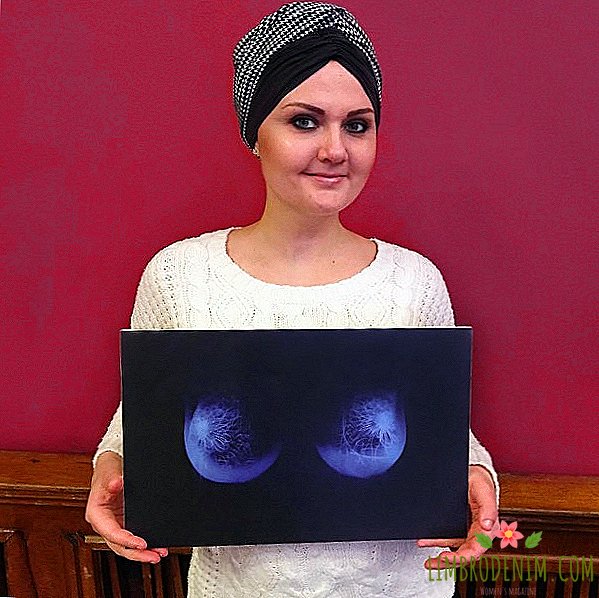Check your prejudices: Is it possible to kill a hidden sexist in yourself?

Dmitry Kurkin
Question "Am I not racist?" (sexist, xenophobe, homophobic - underline) goes in the inevitable combination with the dubious construction "I am not a racist, but ..." (about the deceptive logic of which we have already discussed). People tend to believe that they are more objective than they actually are. But when it comes to discrimination, external, overt expressions of prejudice (explicit), but not hidden (implicit) usually come into view. The latter exist in sociology almost as dark matter in theoretical physics: they are difficult to comprehend and fix, but something suggests that they influence the way we perceive the diversity of people around us. What if you really feel that everyone is equal to you, but some are more equal?

Check your privileges - and your list of contacts
Republic, referring to The Wall Street Journal, tells how, following the usual “start with yourself” advice in such cases, Rick Klaw, who worked as a product manager on YouTube and Blogger, checked his own list of contacts and subscriptions on social networks and found out that and there is no gender equality at all. In both cases, Klaw rested on the same proportion: eighty percent of men to twenty percent of women.
Klau set himself the goal of leveling it up (it’s worth clarifying that he moved not only the motive to “get better”, but also professional need: a product manager who sees only part of his target audience is a poor product manager), for which he expanded the contact base, adding more women to it, began to subscribe more often to women on social networks (at the same time diversifying and ethnic composition) and made it a rule to ignore panel discussions if only men participated in them. Thus, according to Klaw, he expanded his own perspective - and he offers his readers the same: "Subscribe to people who are not like you."
Your little inner sexist and xenophobe
Are there methods for assessing one’s own internal prejudices? One of such is considered the Harvard test, developed twenty years ago (it, among other things, is recommended by Klaw). His proposed assessment comes down to determining the speed of an intuitive reaction. The faster when answering questions, the respondent draws a parallel between the “good” and the “bad” on the one hand and two groups of people, one of whom is considered discriminated (for example, the couple “people with disabilities” and “people without disabilities”), on the other , the more solid is the association. Simply put: if your discriminated group is more often associated with something “bad”, you unconsciously (implicitly) support the prejudice against it.
This is a rather clumsy way to study the subconscious, and its errors are understood, first of all, by the authors of the test themselves, warning that its results give only a very rough estimate. But some idea that a small sexist and xenophobe can sit inside each of us can still be obtained from them. Implicit prejudices are deeper than what one would like to think. And although the connection between them and the explicit prejudices has not been proven, it has not been proven that this connection does not exist at all.
Simply put: if your discriminated group is more often associated with something “bad”, you unconsciously support the prejudice against it
“Unconscious preferences can influence behaviors. [They] are associated with discrimination that manifests itself in hiring, raising employees, providing medical assistance and making decisions in criminal cases,” the explanatory said after the test, and the word “may” removes unscientific categoricalness. In other words, the purpose of the test is not so much to label (it is generally harmful and ineffective exercise in psychological self-esteem), but to let the subject think about how much his inner attitudes affect the life of people who are directly or indirectly dependent on him. .

Fight or imitation of struggle?
Is it possible to fight hidden prejudices? Opinions on this matter vary. At one end of the spectrum are the authors of the same Harvard test, which require proven methods - and admit that they do not exist right now: "We have too little data to say for certain that the level of implicit prejudice can be reduced, not to mention their total destruction. "Training to support diversity", as a rule, do not use scientifically proven methods to reduce prejudice. For this reason, we advise you to focus on strategies that, in principle, remove the possibility royavleniya implicit prejudices such as "blind" interview and well-designed, "structured" decision-making processes. "
At the other end are people like Rick Klau and Dolly Chu, a sociopsychologist at the Stern School of Business at New York University, the author of the recently published book The Man You Want to Become: How Good People Fight Prejudice. Analyzing the "psychology of good people", it reveals the blind spots that lead to the fact that people who consider themselves progressive, prefer not to notice their own hidden prejudices. And he proposes a program to fight them: to recognize that there are in fact no ideal "good people", but there are those who want to be good - they are distinguished by the ability to develop and work on their shortcomings. In addition, Chu recommends evaluating “ordinary privileges” - advantages over other people that a person received simply because of their affiliation to a particular group (“white”, “male”, “heterosexual” and then with all the stops), and use them as a tool of influence to reduce prejudice and social inequality - at home, at work, among friends and neighbors.
As the circle of interests of a person does not boil down to a set of prejudices, so the setting of quotas in personal life gives suspicious dogmatism
Good intention, however, does not eliminate the reasonable question: how far should the struggle with its own prejudices go? The principles of diversity (ethnic and gender including) are aimed primarily at eliminating discrimination in public institutions and in the professional environment - but is it right to redraw the privacy of these patterns? Is it possible to defeat internal prejudices, simply by updating the social circle and subscriptions in social networks? Or is this not more than self-suggestion - and ultimately the same delusion as thinking that you are certainly not prone to discrimination?
There is nothing harmful in controlling your own hidden prejudices - until it is raised to an absolute and becomes a mandatory requirement for a "good person" (or, on the contrary, a person with implicit bias receives a black mark for "thought-offense"). Even those who, like Dolly Chu, believe that the voice of a small sexist living inside and a xenophobe living inside can be actively suppressed, seem to agree with this.
As the circle of interests of a person does not boil down to a set of prejudices, so the setting of quotas in personal life gives suspicious dogmatism: "Do this - and you will move to a new stage of progressive thinking." And this dogmatism just gives rise to categorical statements of the format “I certainly don’t! ...” - and this is the very blindness with which the confrontation usually begins. And of course, the problem is not solved only by facing the list of contacts or by successfully passing the test for prejudice. Oh, if everything was so simple.
Photo: vege - stock.adobe.com, Project 111, La Petite Brique




